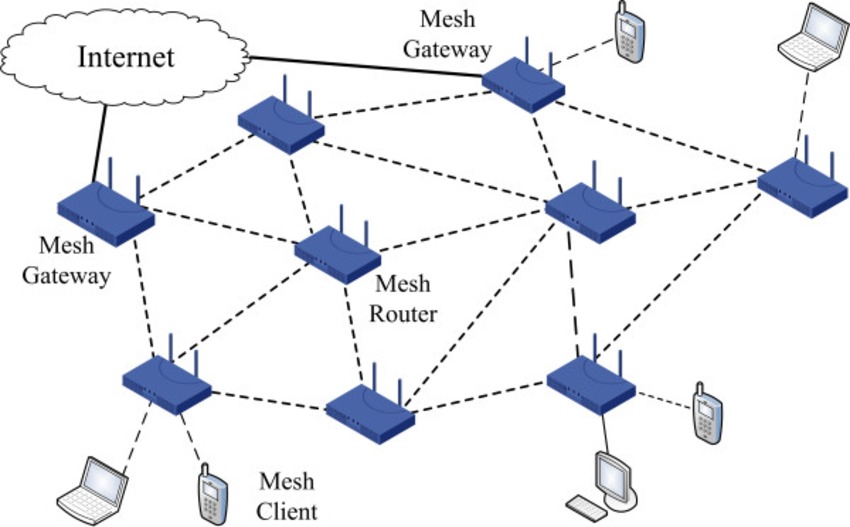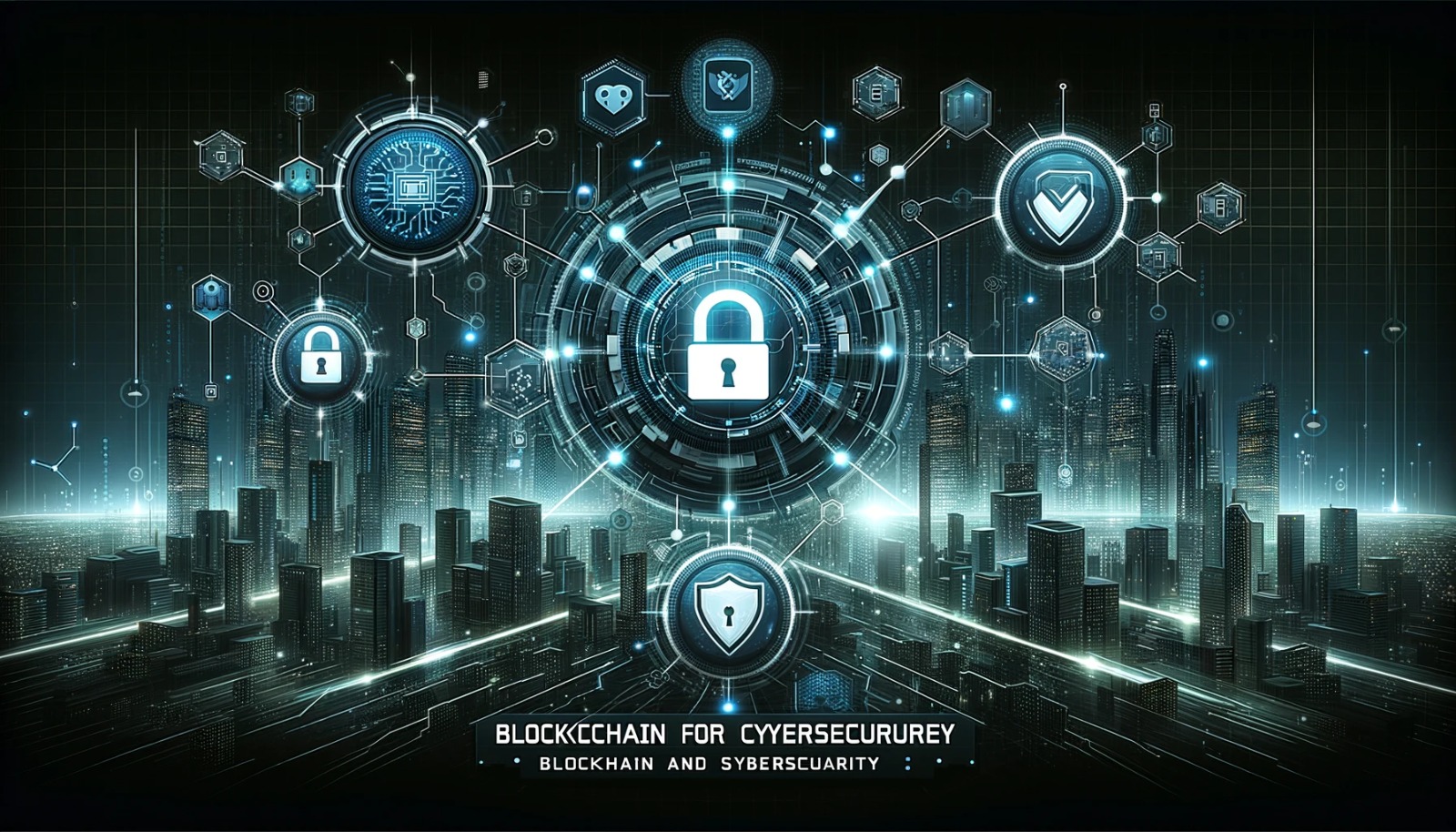
Why Internet Access Is Now a Basic Human Right
The internet has become an essential part of modern life, providing access to education, healthcare, economic opportunities, and social participation. It is no longer a luxury but a necessity that supports personal growth, democracy, and global collaboration. The lack of internet access creates a digital divide, limiting opportunities for disadvantaged communities. As such, internet access should be considered a basic human right, ensuring that everyone has the ability to connect, learn, and par
✨ Raghav Jain

Introduction
In the modern world, access to the internet is no longer just a luxury or an optional tool—it’s a necessity. What started as a medium for research and communication has evolved into the cornerstone of virtually every aspect of human life. From education and healthcare to finance and entertainment, the internet has become a vital resource. But with this growing dependence, the question arises: Should internet access be recognized as a basic human right?
In this article, we will explore why the internet is increasingly being viewed as an essential right, why it’s important for the development of societies, and the challenges of ensuring universal internet access for all. In today’s world, internet access is no longer just a luxury or an optional tool for communication; it has become a fundamental necessity for participating in modern society. The rapid advancements in technology have transformed the way people live, work, and interact. From education and healthcare to employment opportunities and social interactions, the internet is at the core of nearly every facet of daily life. As a result, there is an increasing recognition that access to the internet should be considered a basic human right, much like access to food, clean water, and shelter. This argument has gained momentum in recent years as governments, international organizations, and activists have acknowledged the significant role the internet plays in empowering individuals and enabling economic and social mobility. The United Nations itself has affirmed that access to the internet is a human right, emphasizing its importance in the pursuit of freedom of expression, access to information, and the ability to engage in the digital economy. In many ways, the internet has become the backbone of modern democracy, facilitating access to information, public services, and fostering civic participation. Without it, individuals can find themselves marginalized, unable to fully participate in education, employment, or society at large. The pandemic has underscored this reality, as many activities transitioned online, from schooling and work to healthcare services and social connections. People who lacked access to the internet found themselves at a significant disadvantage, unable to keep up with essential aspects of life. This digital divide disproportionately affects marginalized communities, particularly those in rural or low-income areas, where internet infrastructure is often lacking or prohibitively expensive. The absence of affordable and reliable internet access exacerbates existing inequalities, leaving people with limited opportunities for self-improvement and economic advancement. In this context, internet access becomes a tool of empowerment, enabling individuals to access education, health information, job opportunities, and governmental services. The rise of online education platforms, telemedicine, and digital financial services has made it clear that internet access can help bridge gaps in access to essential services, particularly in underserved regions. Moreover, internet access has become integral to economic development, as businesses increasingly rely on the digital economy to reach customers, expand their operations, and innovate. Small businesses and entrepreneurs, in particular, benefit from the global reach of the internet, enabling them to compete in markets that were previously out of reach. The digital economy also fosters job creation, as new industries, such as e-commerce, digital marketing, and app development, have emerged. In this sense, the internet has become a critical enabler of economic participation and mobility. Beyond its economic and practical utility, the internet also plays a vital role in fostering social connections and promoting freedom of expression. Social media platforms, blogs, and forums allow individuals to communicate and share ideas across geographic and cultural boundaries. This connectivity has been particularly important in enabling marginalized groups to voice their concerns and advocate for their rights, as well as in facilitating movements for social justice and political change. The Arab Spring, the Black Lives Matter movement, and the global climate change protests are all examples of how the internet has been instrumental in organizing collective action and promoting awareness about important social issues. The role of the internet in promoting freedom of expression and enabling participation in public discourse is so vital that its restriction or censorship has become a serious human rights issue. In countries where internet access is restricted or controlled by governments, individuals can find themselves cut off from vital information, unable to participate in democratic processes or hold their governments accountable. The ability to freely access information is a cornerstone of democracy, and the lack of it undermines the principles of transparency, accountability, and participation that are essential for a functioning democracy. In light of these factors, it is increasingly clear that internet access should be regarded as a basic human right. It is a tool for empowerment, a means of promoting social and economic inclusion, and a necessary condition for full participation in modern society. Governments and organizations around the world must recognize the importance of internet access and work towards providing it as a universal service. This includes expanding infrastructure to underserved areas, making internet services affordable, and ensuring that people have the necessary skills to navigate the digital world. Additionally, there must be efforts to ensure that the internet remains an open platform, free from censorship and control, and that individuals' privacy and security are protected. As technology continues to evolve, the internet will only become more integral to daily life, and its importance as a basic human right will only grow. As such, it is essential that all people, regardless of their location or socio-economic status, are provided with the opportunity to access and benefit from the internet. The digital divide must be addressed, not only as a matter of fairness but as a matter of justice. In a world where the internet is key to accessing education, healthcare, employment, and social services, denying people access to it is a form of exclusion that has far-reaching consequences. It is no longer acceptable to view internet access as a privilege or a luxury for a select few. Rather, it should be understood as a basic human right that enables individuals to realize their full potential and participate fully in the opportunities and benefits of the modern world. Access to the internet, therefore, is not just about convenience or connectivity; it is about equity, justice, and the fundamental right of every person to have the tools they need to succeed and thrive in the digital age.
The Evolution of the Internet: A Tool for Empowerment
The internet was initially designed as a tool for communication and information sharing among academics and researchers. Over the years, it transformed into a global platform that revolutionized how we work, learn, socialize, and interact.
Key Milestones in the Internet’s Evolution
- 1990s: The introduction of the World Wide Web made the internet more accessible to the public.
- 2000s: Broadband internet became common in homes, expanding access.
- 2010s: The rise of mobile internet and smartphones made the internet available on-the-go.
- 2020s: The expansion of 5G networks and the global push for internet access in underserved regions.
Today, the internet is an essential part of daily life, offering everything from news and entertainment to healthcare and education, bridging gaps between individuals, communities, and nations.
Internet as a Tool for Education and Knowledge
One of the most powerful reasons why internet access is now seen as a basic human right is its role in education. With the internet, education has become more accessible and inclusive than ever before.
Online Learning: Breaking Barriers
- Online courses and platforms like Coursera, edX, and Khan Academy provide educational opportunities to people worldwide, regardless of their geographical location.
- E-learning tools allow students to attend classes virtually, access lectures, and interact with teachers without being limited by time or space.
- Research databases offer vast resources for students, researchers, and professionals to learn and grow in their respective fields.
Benefits of Internet Access for Education
- Equalizes educational opportunities, especially for rural and marginalized communities
- Offers personalized learning and access to global knowledge
- Facilitates remote learning and reduces dropout rates
Without internet access, many individuals, particularly in underprivileged regions, would not have the same opportunities to learn, grow, and pursue their dreams.
Economic Empowerment: A Gateway to Opportunity
The internet is not just a source of knowledge—it is also a powerful tool for economic growth and empowerment.
Internet and the Modern Economy
- Job opportunities: Remote work has become a viable option for millions, especially with platforms like LinkedIn, Fiverr, and Upwork.
- E-commerce and online businesses have enabled entrepreneurs to create global businesses from home, providing a level playing field for small businesses.
- Financial services have become increasingly digital, with online banking, mobile payments, and digital wallets giving people access to financial systems in previously underserved areas.
Benefits of Internet Access for Economic Empowerment
- Opens new job markets and reduces unemployment
- Provides access to financial resources and services
- Facilitates entrepreneurship and the growth of small businesses
The internet has leveled the economic playing field, giving individuals from all walks of life the ability to improve their economic standing.
Healthcare: A Lifeline for Medical Information and Services
Healthcare is another essential area where internet access has proven to be invaluable, especially in today’s fast-paced world.
The Role of the Internet in Healthcare
- Telemedicine allows people to consult doctors online, breaking down barriers such as distance, cost, and time.
- Health information is available online, enabling individuals to learn about conditions, treatments, and wellness practices.
- Online prescriptions and medical consultations ensure that even in remote areas, people can get timely medical help.
Benefits of Internet Access for Healthcare
- Facilitates healthcare delivery in underserved regions
- Empowers people to take control of their health by providing valuable information
- Improves access to mental health services and support groups
For people in rural or low-income regions, the internet can make the difference between life and death, enabling access to healthcare resources and medical advice that would otherwise be out of reach.
Social Inclusion: Bridging the Digital Divide
Access to the internet is key to social inclusion, as it enables people to participate in conversations, express themselves, and build communities.
Internet and Social Connectivity
- Social media platforms connect people, enabling them to communicate and share their ideas, experiences, and cultures across borders.
- Digital activism allows individuals to rally for social justice, environmental causes, and human rights, contributing to global movements like #MeToo and #BlackLivesMatter.
- Online communities create spaces where people can find support, form friendships, and advocate for their rights.
Benefits of Internet Access for Social Inclusion
- Promotes equality and fights discrimination
- Gives marginalized groups a voice and platform
- Creates global solidarity and awareness
Without the internet, many voices—particularly those from oppressed communities—would be silenced or unheard, limiting their ability to effect change.
Privacy and Security: The Need for Safe Access
While the internet has many benefits, it also raises concerns about privacy and security. As internet access becomes a human right, it is equally important to ensure that this right is protected.
The Importance of Secure Internet Access
- Privacy laws and data protection regulations are essential to ensure that personal information is not misused or exploited.
- Cybersecurity is crucial to prevent online threats such as hacking, identity theft, and financial fraud.
- Digital literacy programs are necessary to help individuals understand how to protect themselves online.
Benefits of Safe and Secure Internet Access
- Provides a safe space for personal expression and communication
- Reduces risks of online exploitation and fraud
- Encourages responsible internet usage
Access to the internet must come with safeguards to protect individuals' privacy and security, ensuring a safe online environment for all.
The Role of Governments and Organizations in Bridging the Gap
While internet access is increasingly recognized as a human right, millions of people still lack basic internet connectivity. Governments, international organizations, and tech companies play a crucial role in bridging this gap.
Efforts to Provide Universal Internet Access
- Government initiatives to expand broadband networks and provide subsidized internet in rural areas
- International organizations such as the United Nations pushing for global internet rights and digital inclusion
- Tech companies like Google, Facebook, and Microsoft investing in infrastructure to bring internet to underserved regions
Benefits of Expanding Internet Access Globally
- Ensures equitable access to education, healthcare, and economic opportunities
- Promotes global collaboration and knowledge sharing
- Improves quality of life and empowers individuals
To ensure that internet access is a basic human right, ongoing efforts must be made to provide affordable and accessible internet to every corner of the world.
Conclusion
The internet has evolved from a luxury to an essential tool that impacts every facet of life. From education and healthcare to economic opportunities and social inclusion, the internet has become a powerful enabler of human progress. As we continue to rely on the internet for daily tasks, it’s clear that access to it is no longer a privilege—it’s a right.
Recognizing internet access as a fundamental human right can help ensure that no one is left behind in the digital age. Governments, organizations, and individuals must work together to bridge the digital divide and provide everyone with the tools they need to thrive in today’s interconnected world.
Q&A Section
1. How has the internet become a fundamental part of daily life?
Ans:- The internet has evolved from a luxury to a necessity as it provides access to vital resources such as education, healthcare, work opportunities, and social connections. It has become the backbone of modern society, facilitating communication, knowledge sharing, and economic participation.
2. Why is internet access considered essential for education today?
Ans:- With the rise of online learning platforms and digital classrooms, the internet has become a key tool for education. It offers students access to resources, courses, and academic support that might not be available locally, breaking down geographical and economic barriers.
3. What role does the internet play in healthcare?
Ans:- The internet has transformed healthcare by enabling telemedicine, remote consultations, and access to medical information. It allows patients in rural or underserved areas to receive medical advice and treatment without needing to travel long distances.
4. How does internet access promote economic equality?
Ans:- The internet opens up opportunities for entrepreneurship, remote work, and access to global markets. It enables individuals in disadvantaged areas to gain skills, find work, and participate in the global economy, thus reducing income inequality and promoting economic growth.
5. Why is the internet essential for social participation and democratic engagement?
Ans:- The internet allows people to engage in political discourse, voice opinions, and participate in social movements. It enables access to news, government services, and platforms for collective action, which are crucial for the functioning of a democratic society.
6. How does the lack of internet access create a digital divide?
Ans:- Those without access to the internet are excluded from educational, economic, and social opportunities, creating a digital divide. This gap disproportionately affects rural and low-income populations, further deepening inequality and limiting their ability to progress in the modern world.
7. Is the internet necessary for personal development and growth?
Ans:- Yes, the internet provides a wealth of knowledge, learning tools, and opportunities for personal growth. From educational content and professional development courses to forums for personal expression, the internet enables individuals to continuously improve their skills and knowledge.
8. Why should internet access be considered a basic human right?
Ans:- Access to the internet is essential for accessing critical resources, exercising free speech, and participating in society. Denying people internet access is akin to denying them the ability to access information, communicate, and fully participate in modern life, making it a fundamental right.
9. How does internet access support global collaboration and innovation?
Ans:- The internet connects people globally, fostering collaboration on projects, research, and business ventures. It enables the exchange of ideas and innovations across borders, accelerating scientific progress and global problem-solving.
10. What can be done to ensure that internet access is available to everyone?
Ans:- Governments, businesses, and international organizations must work together to expand internet infrastructure, reduce costs, and provide affordable access to underserved populations. Policies aimed at universal internet access can help bridge the digital divide and ensure equitable access for all.
Similar Articles
Find more relatable content in similar Articles

Why Mesh Networks Might Replac..
Mesh networks are transforming.. Read More

Wearable Health Sensors: The D..
Wearable health sensors are re.. Read More

How Blockchain Is Reinventing ..
Blockchain is transforming cyb.. Read More

Foldable Screens in 2025: Are ..
Foldable screens have finally .. Read More
Explore Other Categories
Explore many different categories of articles ranging from Gadgets to Security
Smart Devices, Gear & Innovations
Discover in-depth reviews, hands-on experiences, and expert insights on the newest gadgets—from smartphones to smartwatches, headphones, wearables, and everything in between. Stay ahead with the latest in tech gear
Apps That Power Your World
Explore essential mobile and desktop applications across all platforms. From productivity boosters to creative tools, we cover updates, recommendations, and how-tos to make your digital life easier and more efficient.
Tomorrow's Technology, Today's Insights
Dive into the world of emerging technologies, AI breakthroughs, space tech, robotics, and innovations shaping the future. Stay informed on what's next in the evolution of science and technology.
Protecting You in a Digital Age
Learn how to secure your data, protect your privacy, and understand the latest in online threats. We break down complex cybersecurity topics into practical advice for everyday users and professionals alike.
© 2025 Copyrights by rTechnology. All Rights Reserved.